That constant feeling of mucus dripping down your throat is more than just annoying—it's post-nasal drip, and it affects millions of people every day. If you're tired of chronic throat clearing, persistent cough, or that sticky sensation in your throat, you're not alone. Understanding what causes post-nasal drip is the first step to finally getting relief.
What You'll Learn
- Why mucus drips backward down your throat (and how to stop it)
- The real difference between true post-nasal drip and throat irritation that feels similar
- Which underlying causes trigger your symptoms (sinusitis, allergies, GERD, and more)
- Simple tracking methods to identify your personal triggers
- Proven treatments that target the root cause, not just the symptoms
Why Mucus Drips Backward + How to Stop It
Post-nasal drip happens when your body's natural mucus drainage system gets disrupted. Normally, tiny hair-like structures called cilia sweep mucus forward and out through your nose. But when this system fails, excess mucus flows backward down your throat instead.
Two main problems cause this backward flow: your body makes too much mucus, or your cilia can't clear it properly. Sometimes both happen at once. The result? Thick, sticky mucus coating your throat and triggering that urge to constantly clear it.
True post-nasal drip means you can actually see or feel mucus in your throat. But many people experience similar symptoms from throat inflammation alone, even without visible mucus. Both feel awful, but they need different treatments.
What Really Causes Post-Nasal Drip
Several conditions can trigger excess mucus production or poor drainage. Sinusitis tops the list—when your sinuses get inflamed or infected, they produce extra mucus that has nowhere to go but down your throat.
Allergies cause similar problems. Your immune system overreacts to triggers like pollen or dust, ramping up mucus production. GERD (acid reflux) irritates throat tissues, making them feel like there's mucus present even when there isn't.
Other common causes include hormonal changes (especially in women), respiratory infections, dry air, and certain medications. Even your sleeping position can make symptoms worse by allowing mucus to pool in your throat overnight.
The key is identifying your specific trigger. What works for allergy-related drip won't help if acid reflux is the real culprit.
Track Your Triggers with a PND Diary
Start keeping a simple diary to identify your personal triggers. Note when symptoms are worst—morning, evening, or after meals. Track what you eat, especially dairy, spicy foods, or alcohol. Record your sleeping position and whether symptoms improve when you sleep elevated.
Pay attention to seasonal patterns too. Spring and fall flare-ups often point to allergies. Year-round symptoms suggest structural issues like chronic sinusitis or GERD.
One patient tracked her symptoms for two weeks and discovered that lying flat triggered her worst episodes. Simply sleeping with an extra pillow reduced her nighttime throat clearing by 80%.
Proven Solutions That Actually Work
The most effective approach treats the underlying cause, not just the symptoms. For sinusitis-related post-nasal drip, red light therapy offers promising results. One user shared: "I had chronic throat clearing for 10 years. I started using red light therapy for my sinus problems, and my post-nasal drip disappeared as an unexpected bonus."
NoMore Colds red light therapy targets sinus inflammation directly, reducing mucus production and improving drainage. Many users report significant improvement in both sinus symptoms and post-nasal drip within weeks.
For immediate relief, try these proven methods: Stay well-hydrated to thin mucus naturally. Sleep with your head elevated to improve drainage. Gargle with warm salt water (1/2 teaspoon salt in 8 ounces warm water) to soothe throat irritation and clear mucus.
An anti-inflammatory diet can also help. Reduce dairy if it seems to thicken your mucus. Limit spicy foods and alcohol if they trigger symptoms. Add ginger and turmeric, which have natural anti-inflammatory properties.
Post-nasal drip doesn't have to control your life. By understanding what triggers your symptoms and treating the root cause, you can finally get the relief you've been searching for.

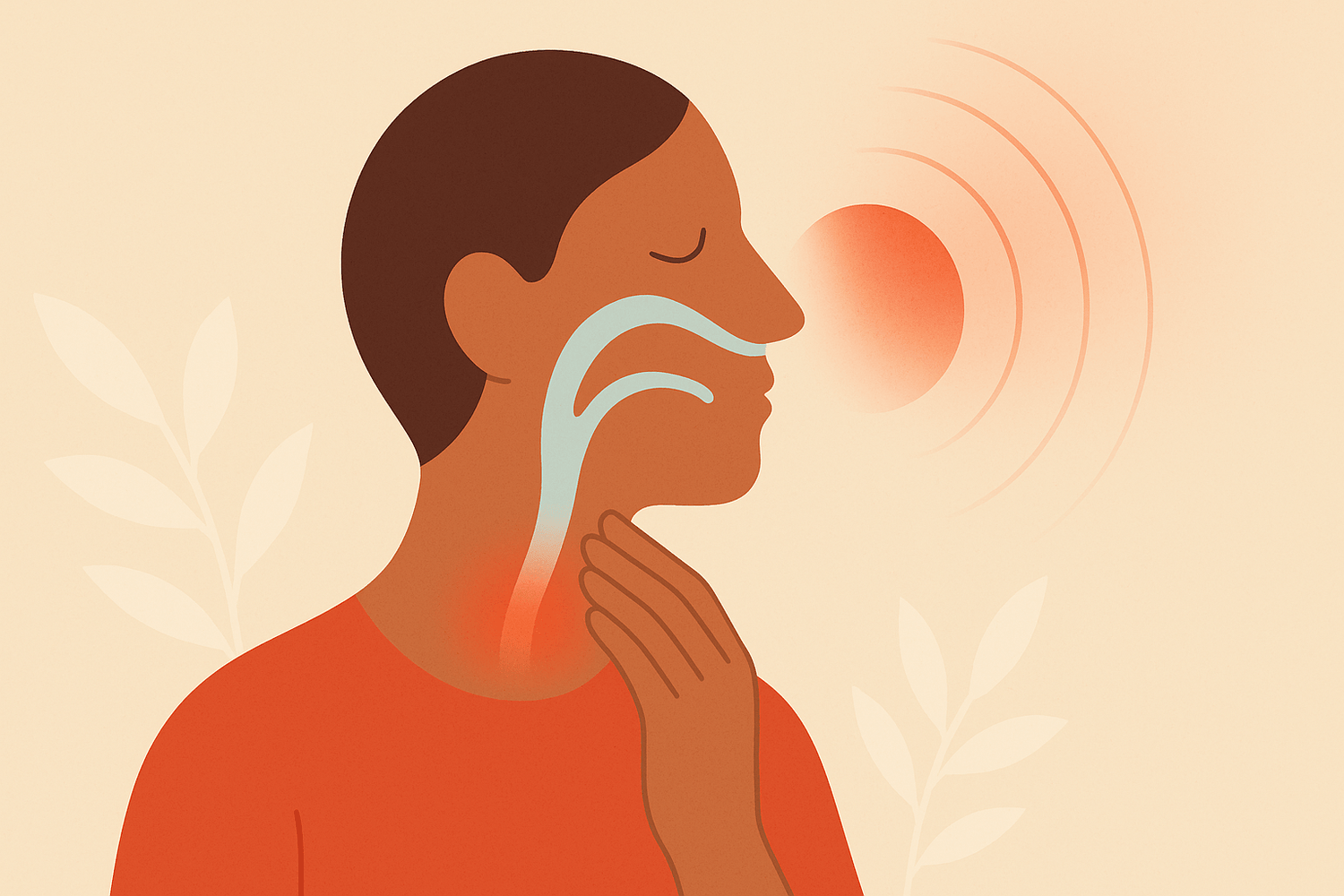
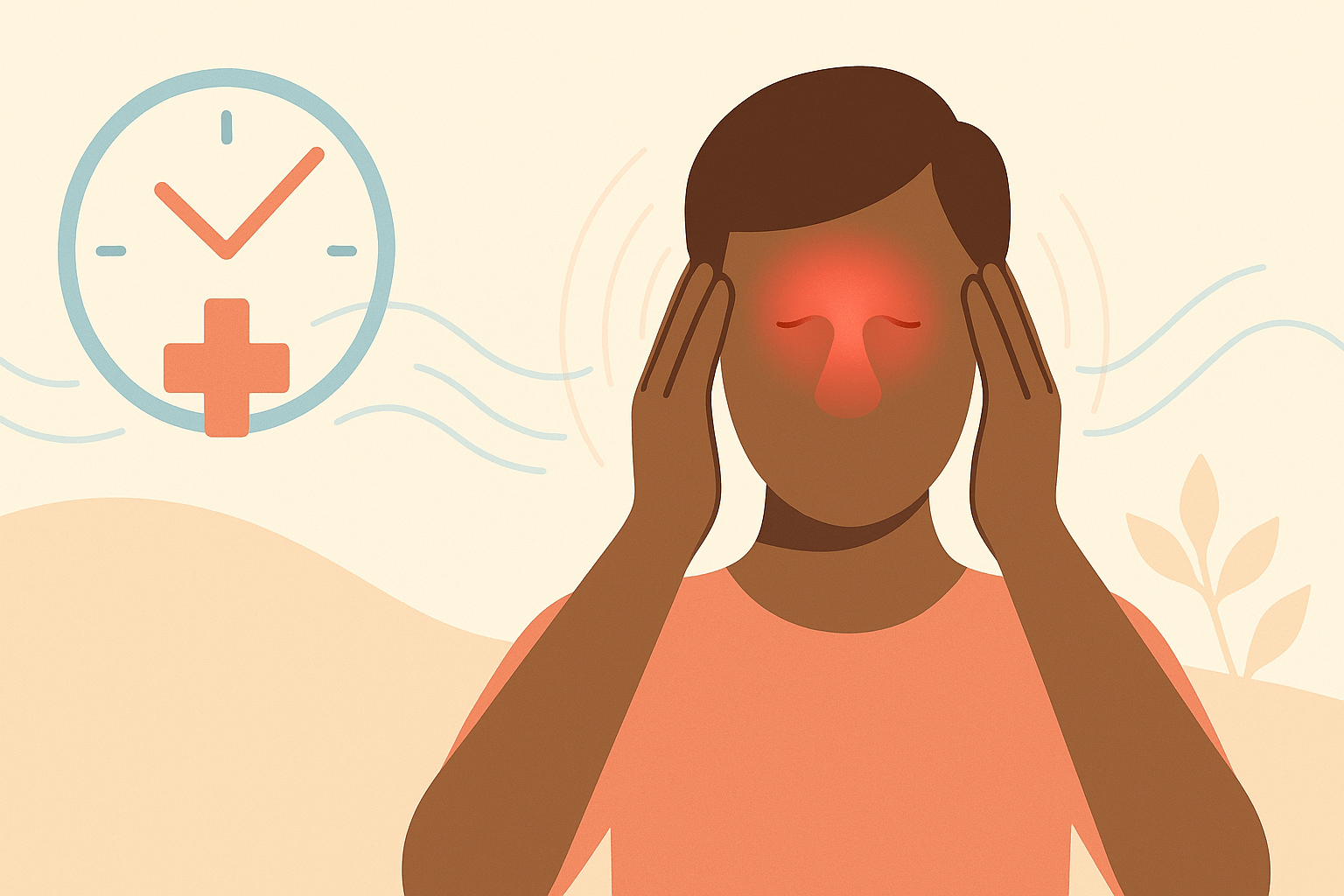
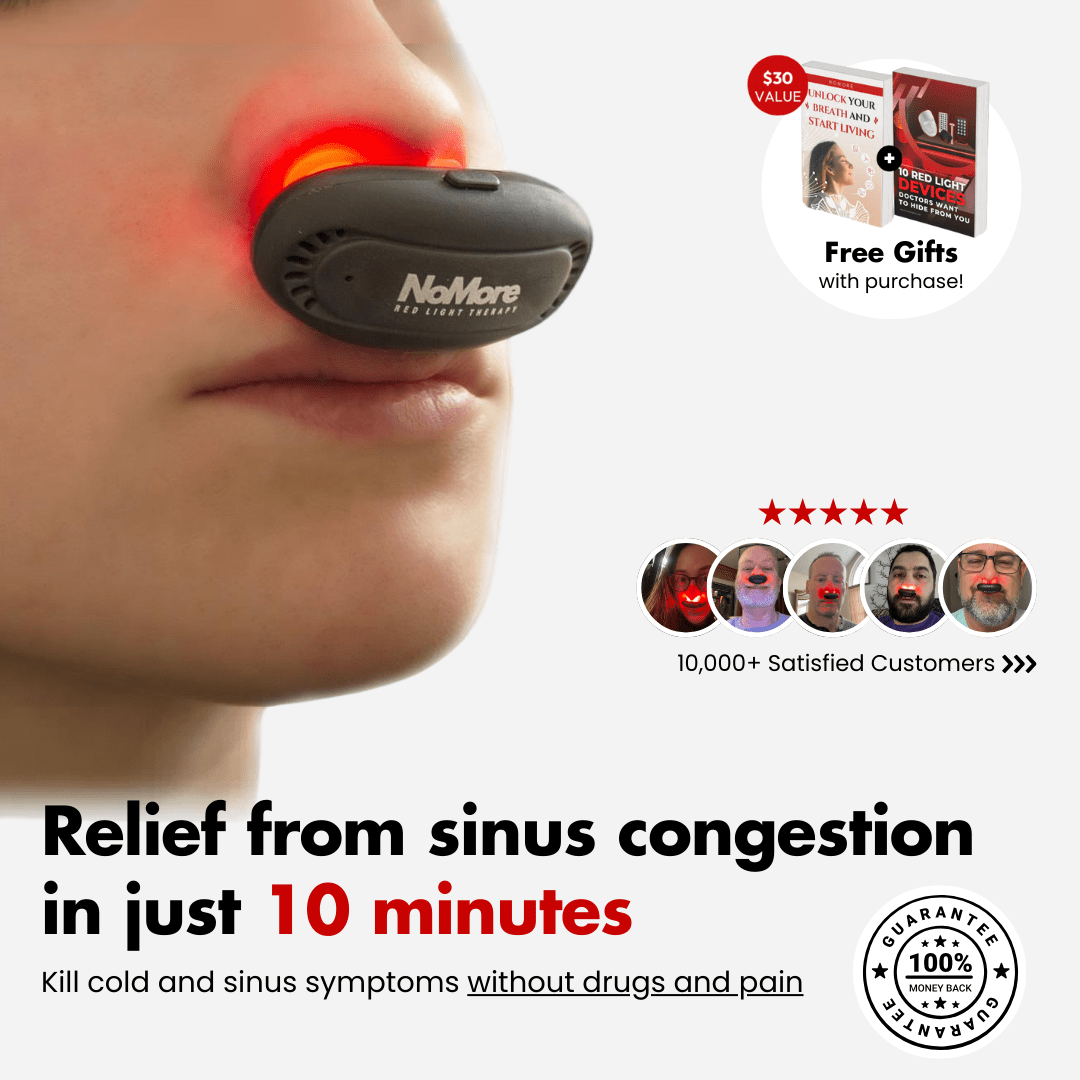
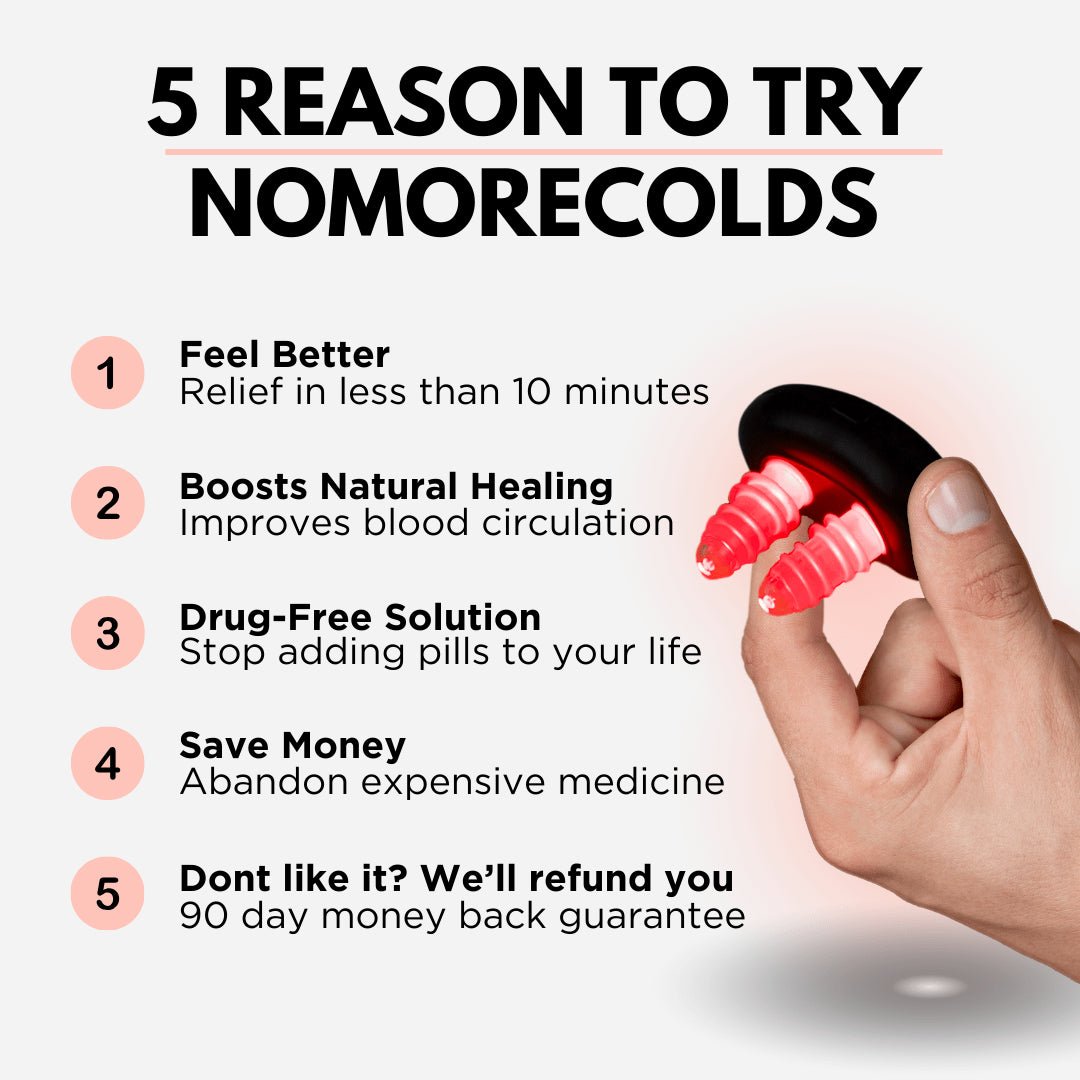
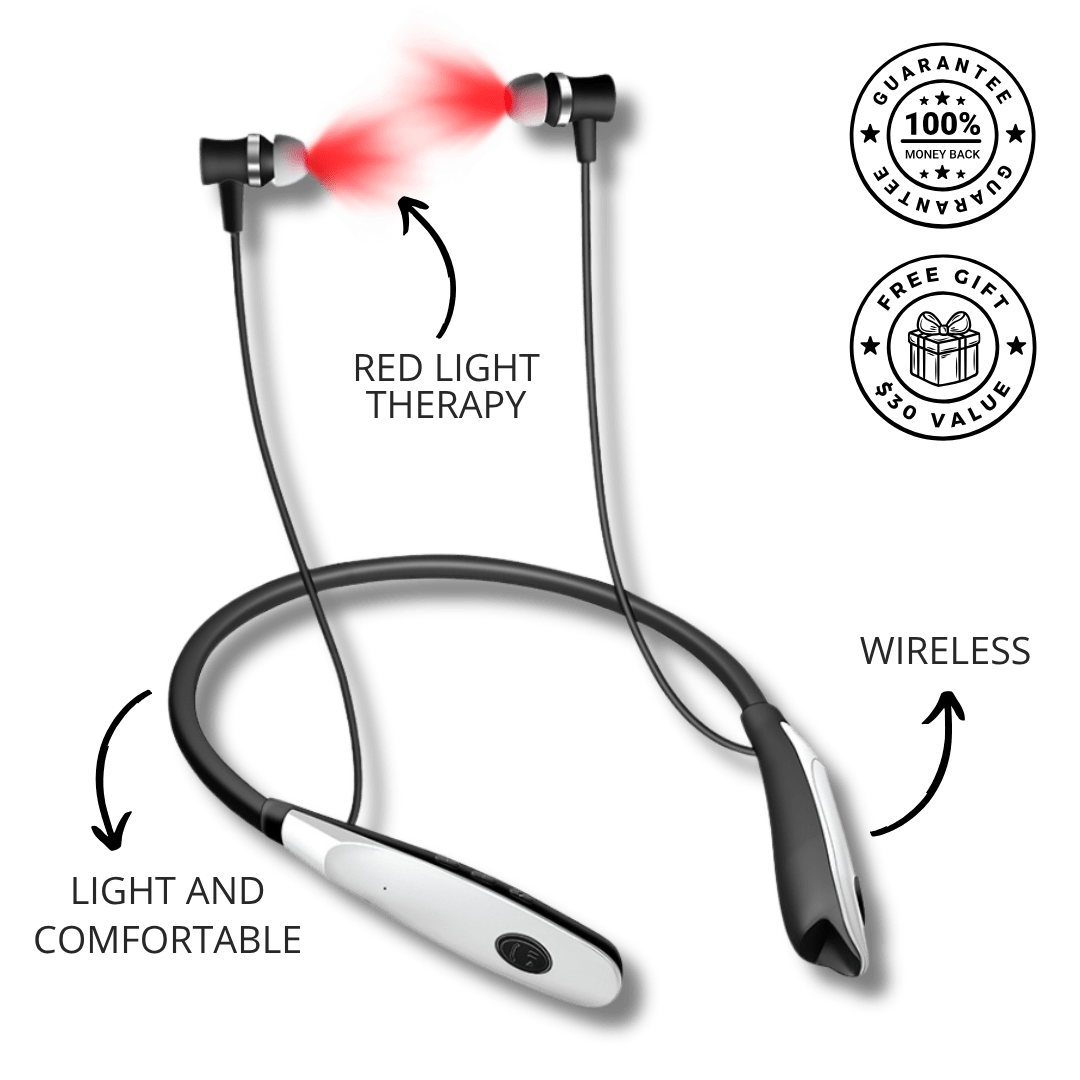
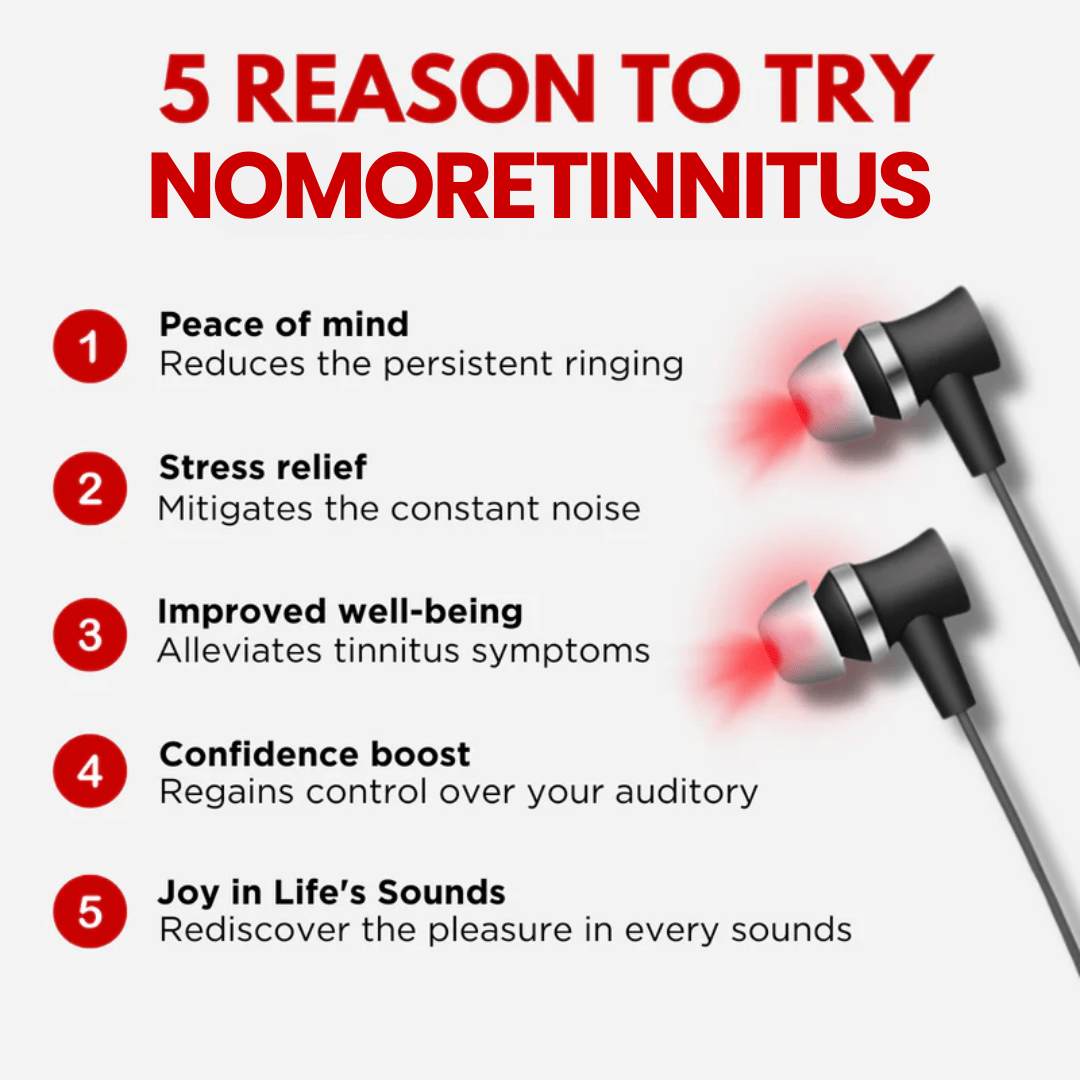
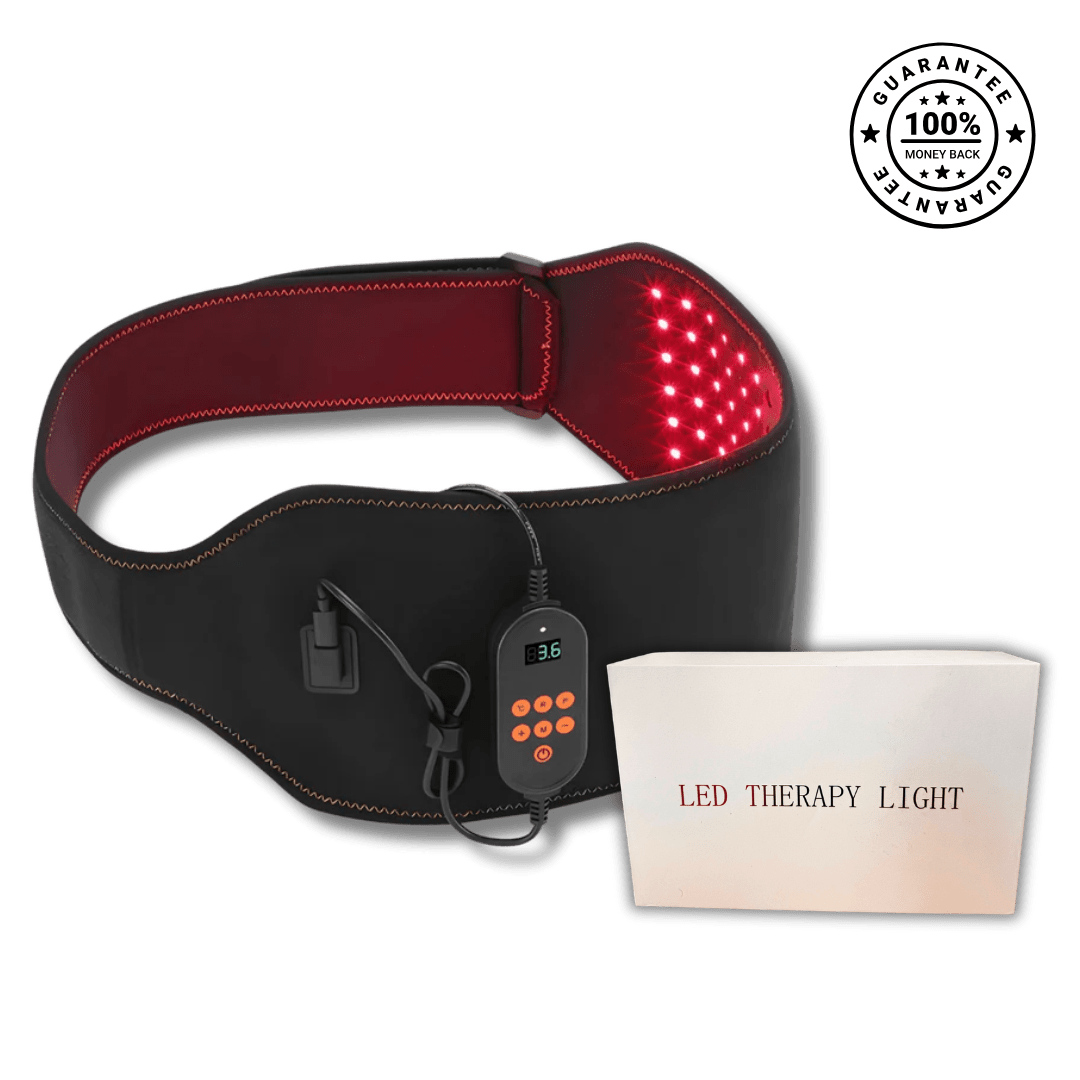

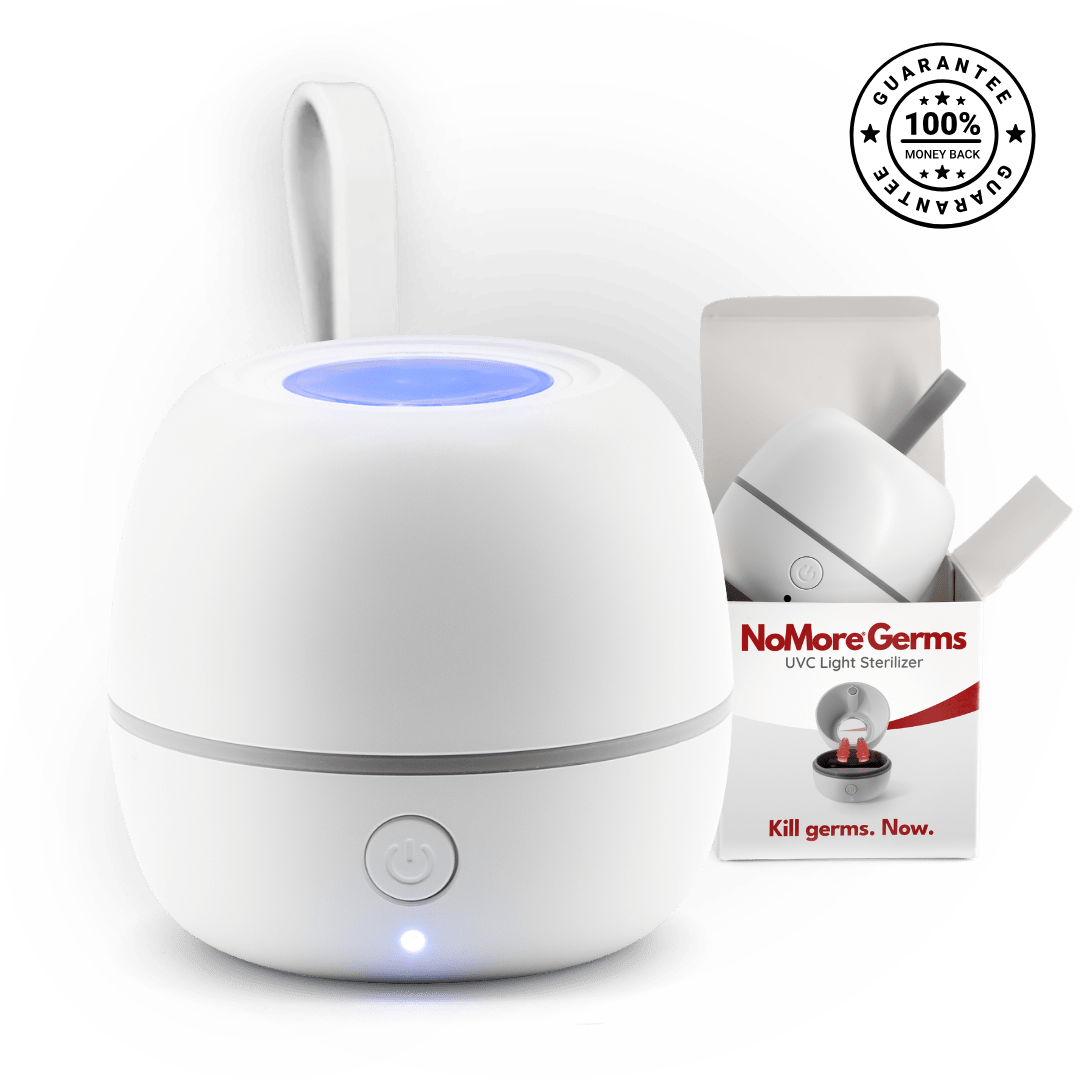
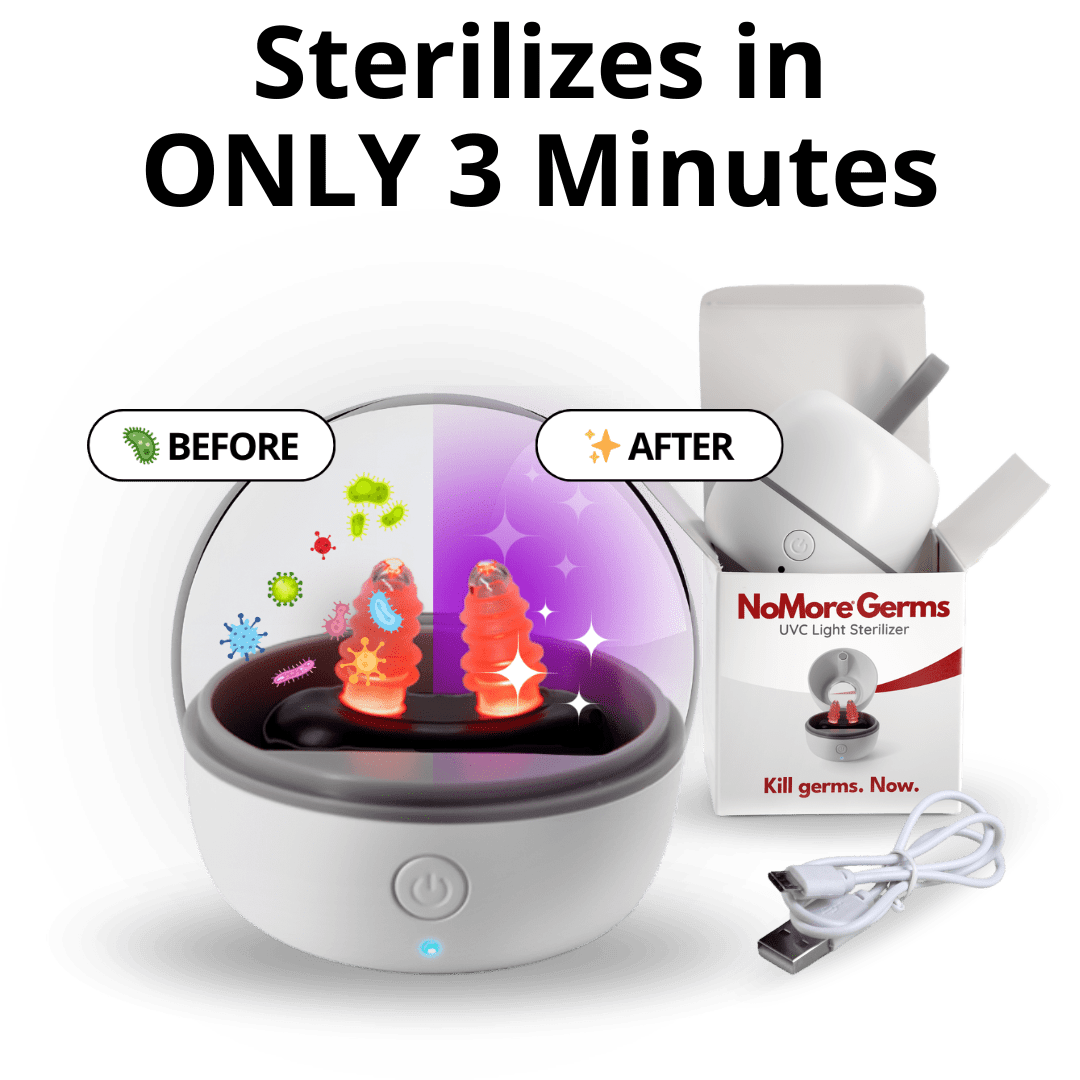
Leave a comment
This site is protected by hCaptcha and the hCaptcha Privacy Policy and Terms of Service apply.